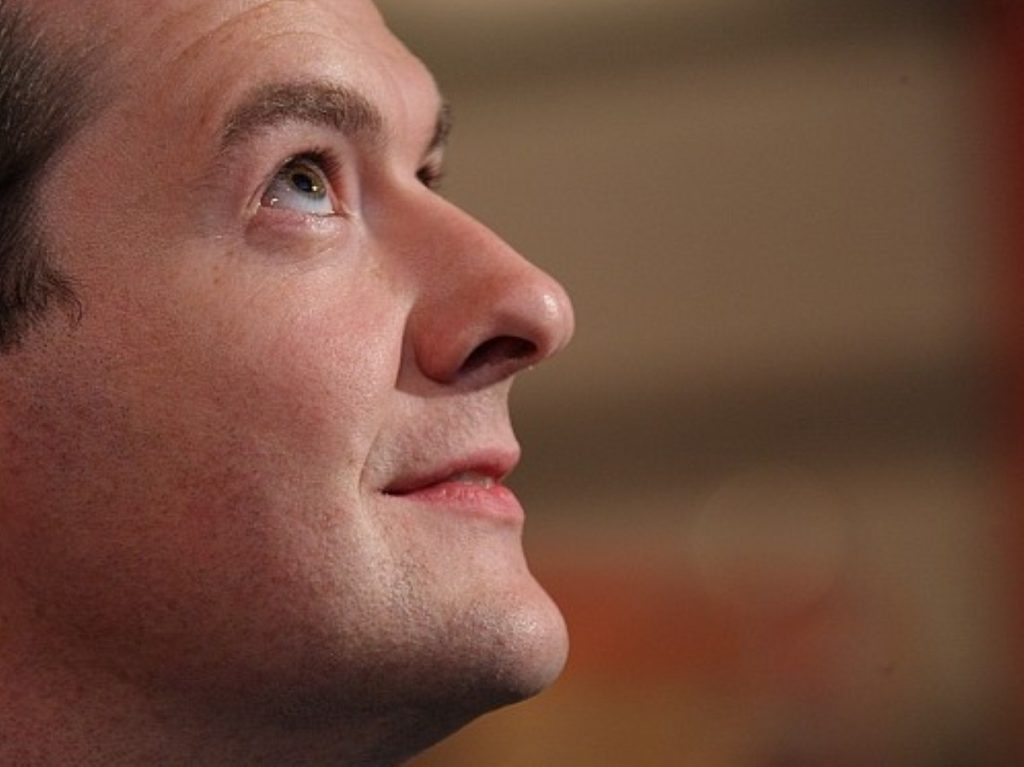The Week in Review: George Osborne squeezes until the pips squeak
George Osborne is a lucky man. Even with a disastrous economic policy and a set of facial expressions designed for radio, the press give him an easy ride. He is charmed. Unfortunately, his economic agenda is not.
He returned to the Commons for a spending review on Wednesday with much of the press still portraying him as a master tactician – a reputation he has struggled to justify over the last three years. The Evening Standard even had a choice of three different pro-Osborne covers for readers to choose from.
There was plenty of grumbling about the state of the UK economy, but very little serious questioning of his strategy. Even Labour appeared to accept the basic tenants of fiscal conservatism – for the next few years at least.
That gave the chancellor the advantage of being able to paint the opposition's criticism of his agenda as incoherent, even as the election strategist part of his brain will have been crestfallen by the party's commitment not to borrow more for day-to-day spending. He was keen to paint Labour as proliferate but the party's plan only to borrow for capital investment chimes too closely with his own agenda for him to be able to do much damage with it.


Married couples tax allowance was off the table, but Osborne did throw some red meat to Tory backbenchers with the last bit of his spending review. Job seekers allowance would not be paid for the first week after unemployment, those who couldn't speak English would need to take classes before claiming welfare and people would have to check in at the job centre once a week rather than once a fortnight if they wanted to keep their payments.
Some government departments fared better than others. Schools and hospitals were ring-fenced for reasons of political survival. Spies even got a spending boost, presumably because they have more photos of him with ladies of the night.
Every time Osborne broke the news of how badly a department was going to get stripped down (usually between eight and ten per cent) he threw a little cherry on top. Defra lost out, but got guaranteed flood defences. The Department for Local Government lost out (badly) but council tax was frozen for two years. Osborne is a very political chancellor. He knows which buttons to push and how to give an abysmal document a bit of PR massage. He makes sure there is ample comedy relief in his horror movie.
Look closer and the story gets worse. Osborne is now firmly in Gordon Brown territory with the various financial and semantic tricks he plays on big ticket occasions.
The worst culprit was infrastructure spending, which he unveiled in gross, not net, terms – a rather dubious decision given the impact of deterioration at this level. He very clearly gave the impression of unveiling new money, but it was not. It was old money, pre-announced, reheated and served up again with garnish. A later statement from Danny Alexander waxed lyrical about "the most comprehensive, ambitious and long-lasting capital investment plans this country has ever known" but it could only do so by looking ahead to plans for 2020. In 2015/16 – the period the spending review covered – infrastructure investment would actually be down in real terms.
By the time the dust had settled we were in much the same place as we were before. The economy was stagnant with no ideas to revive it. The deficit reduction plan had taken a two-year holiday. The chancellor still looked as if he had not seen a sunny day since he entered No.11. The next round of cuts, for the period following 2015/16, were set to be particularly brutal, like squeezing a lemon until the pips squeak, then taking those pips and squeezing them until they're in lots of little pieces, and then getting a hammer and smashing them down to dust. Whichever party doesn't win the general election can at least content itself that it won't be delivering that spending review.
Oh, and Osborne had a meal in central London which cost a tenner. For many people, that was the real outrage.

